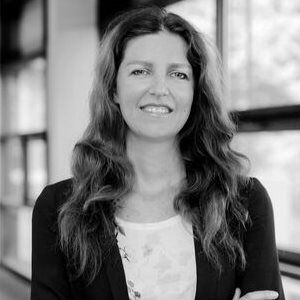Esther Kühn: The neuronal mechanisms of body memories
- Location
- 52 Pritchatts Road - Lecture Theatre 1 (G16), Hybrid Event, registration required
- Dates
- Monday 3 June 2024 (13:00-14:00)
 Esther Kühn
Esther Kühn
Body memories are the sum of all bodily experiences that we store in memory and that influence behaviour. This encompasses positive bodily experiences, such as a recent massage or a hug from a friend, or negative bodily experiences, such as bodily pain or feelings of stress or discomfort. In particular negative body memories can contribute to the development of mental disorders. In my talk, I will use tactile memories as a model system to focus on the neuronal mechanisms that underlie the storage and retrieval of bodily experiences. I will introduce how ultra-high field fMRI at 7 Tesla can help us to describe offline representations of touch, and I will present recent evidence on the mechanisms that underlie the encoding, the biased representation, and the plasticity of tactile memories. Finally, I will introduce a novel Application (App) that we developed to better understand the relationship between tactile memories and the occurance of somatic symptoms.
Registration in advance is required: Register to attend
About the Speaker
Esther Kühn studied Biology at the University of Münster, Germany, and holds a MSc degree of Neuroscience that she obtained from the University of Dunedin in New Zealand. She pursued her PhD in Cognitive Neuroscience at the Max Planck Institute for Human Cognitive and Brain Sciences in Leipzig, where she got fascinated by using 7 Tesla MRI to understand the precise circuits that underlie human perception and cognition. After a postdoc at University College London, she lead an independent research group on "Cortical Microstructure in Health and Disease" at the Institute for Cognitive Neurology and Dementia Research at the University of Magdeburg in Germany. In 2022, she was appointed Associate Professor for "Translational Imaging of Cortical Microstructure" at the Hertie Institute for Clinical Brain Research in Tübingen, Germany.
This seminar is free to attend and is open to all, both within and outside the University. Registration in advance is required.
